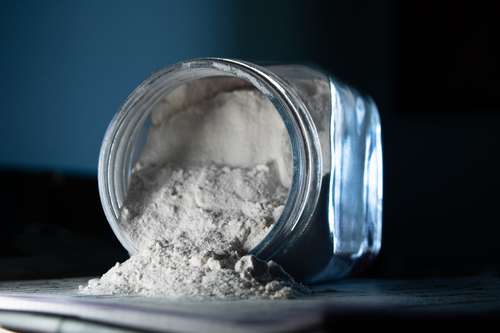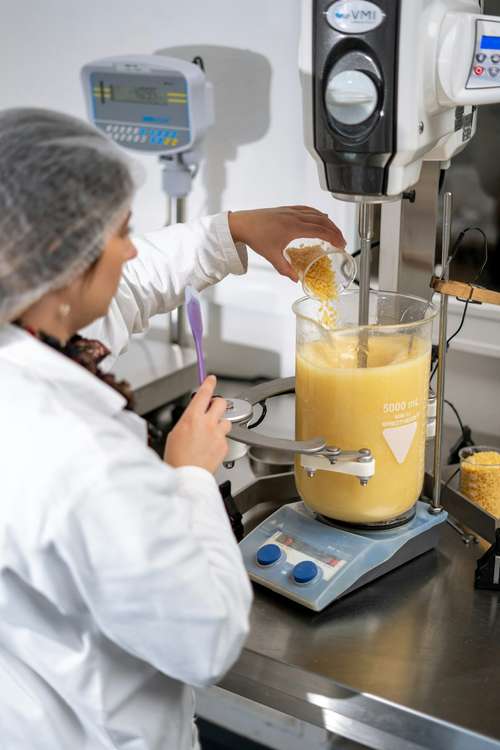Protein Powders and Shakes: Report Uncovers High Lead Levels in Nutritional Supplements
There’s been quite a stir lately regarding protein powders and protein shakes. A recent consumer report has brought to light that several popular nutritional supplements are testing positive for high lead levels. If you’re someone who relies on these dietary supplements on a daily basis, you might find yourself wondering about the long-term health risks associated with lead contamination. It’s almost like discovering an unexpected ingredient in your favorite dish!
The investigation revealed that some products exceeded safe levels of heavy metals, sparking a debate over product testing and the overall safety of these foods. The news, while alarming, reminds us to keep a keen eye on the ingredients of what we consume. It’s something that many of us take for granted until a report like this forces us to reexamine our habits.
Summary of the Consumer Report Findings
This section lays out the key takeaways from the recent consumer report. The study was designed to evaluate a range of protein products to verify their purity and safety. The report discovered that many popular protein powders and protein shakes contain heavy metals, notably lead, at levels that raise immediate red flags.
The consumer report, which has been circulating widely, indicates that some of the best-selling products show signs of lead contamination. A couple of these products even reported lead levels significantly higher than what is considered safe. The overall findings suggest that the supplement industry might need to tighten its controls when it comes to raw material sourcing and manufacturing processes.
In some instances, the high lead levels might not result in immediate health effects; however, experts warn that long-term exposure to lead can lead to cumulative health risks. Clearly, a more rigorous product testing regime could help mitigate such dangers, ensuring that supplement safety is prioritized across the board.
Potential Health Risks and the Impact of Lead Contamination
Heavy metals like lead are no joke, and this section is dedicated to understanding the impact of such toxic ingredients. Even though acute lead poisoning from these supplements might be unlikely in the short term, there is significant concern over the effects of continuous exposure.
If you’ve ever wondered how lead exposure could affect you, consider this: while a single instance might not have noticeable effects, repeated consumption of contaminated protein shakes and powders can gradually build up lead levels in your body. This build-up can lead to subtle, but dangerous, deterioration in health over time.
Many nutritionists note that the health risks from these products extend beyond immediate poisoning. They stress that prolonged lead exposure may affect kidney function, cognitive abilities, and even cardiovascular health. Moreover, vulnerable populations such as children and pregnant women should be especially cautious. These insights hint at why product recall and proper labeling are critical to maintaining consumer safety.
It’s important to reiterate that while the potential health effects are serious, the actual risk often depends on the amount and frequency of consumption. Still, even small amounts of lead due to contaminated supplements can be problematic when accumulated over years.
Assessing Supplement Safety and Product Testing Standards
In this section we take a closer look at supplement safety measures and product testing standards. With growing concerns about lead in protein products, many experts are calling for a re-evaluation of current industry protocols. What we see here is a need for both enhanced consumer report practices and stricter self-regulation by manufacturers.
Some manufacturers have already begun to review their sourcing and production methods in response to these reports. They are looking to implement more rigorous testing protocols. Improved product testing not only safeguards consumer health but also builds trust in the supplement industry.
For those of you reading who are considering the risks versus benefits of protein powders and shakes, it might be wise to keep an eye out for products that publicly report their heavy metals testing. Transparency is key when it comes to supplement safety. The industry stands at a crossroad—by embracing higher safety standards, manufacturers have a chance to reaffirm their commitment to consumer health.
Current safety guidelines, as noted in various consumer reports, indicate that relying on third-party testing could help. For many users, switching to brands that support their product testing results might be a simple yet effective way to reduce your exposure to toxic ingredients such as lead.
What Consumers Can Do and Future Expectations
This final section focuses on actionable steps that consumers can take to protect themselves from lead contamination in dietary supplements. With so many protein powders and protein shakes available in the market, it can sometimes feel like you're navigating a minefield. So how do you choose the safe option?
Firstly, becoming informed is essential. If you’re a regular user of nutritional supplements, take a moment to look up recent consumer reports and product recalls. Websites dedicated to supplement safety can be a great resource in your research. Look for detailed reports on product testing, and do not overlook the importance of transparency from manufacturers.
Another strategic move is to check if the products you currently use have undergone third-party testing. Many reputable brands publish their lab results online to show their compliance with lead exposure guidelines. This information can bring a sense of reassurance that your supplements meet safety concerns standards recommended by health experts.
It might also be helpful to reach out directly to manufacturers with questions. While this might seem tedious compared to simply scrolling through product labels, getting answers straight from the source provides the clarity needed to make informed decisions about your health.
Looking ahead, this report could be a catalyst for more rigorous oversight in the supplement industry. Future consumer reports and stricter regulatory measures might drive significant improvements in both product testing and overall safety standards for protein products. Hearing about these changes gives many a sense of hope that the industry will prioritize consumer safety moving forward!
Conclusion
In sum, the recent findings on lead contamination reiterate the importance of staying vigilant when choosing nutritional supplements. Protein shakes and powders, long celebrated for their health benefits, now come under scrutiny for potentially harboring toxic ingredients. This issue not only calls for reflective evaluation of product testing processes, but also for consumers to seek out transparency and quality assurance in the foods they trust with their health.
Whether you’re aiming to boost your protein intake or simply maintain a balanced diet, ensuring your supplements are free from harmful levels of heavy metals is paramount. By staying informed and seeking out brands that uphold high safety standards, you can continue pursuing a healthy lifestyle without worrying about the hidden risks associated with lead exposure.




